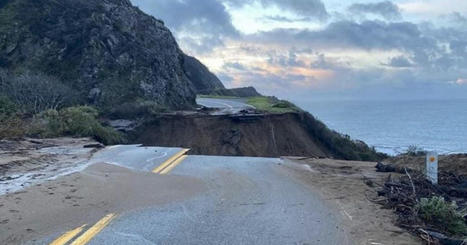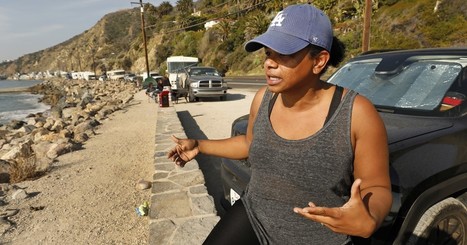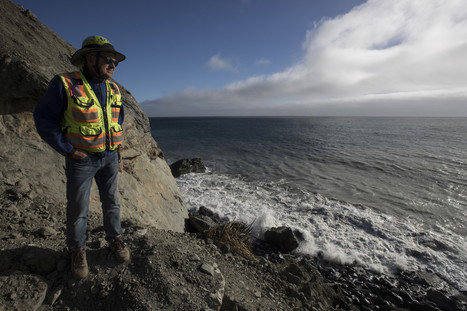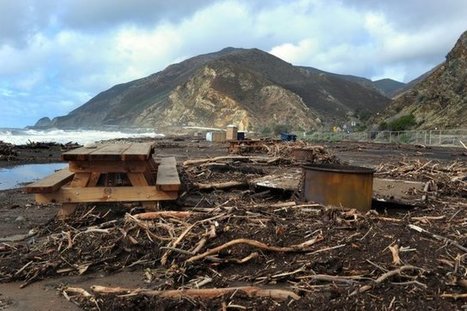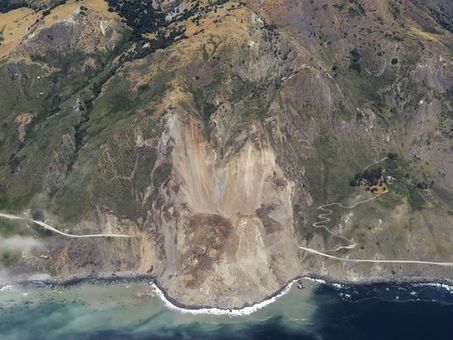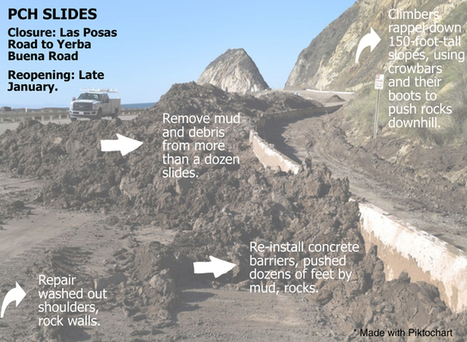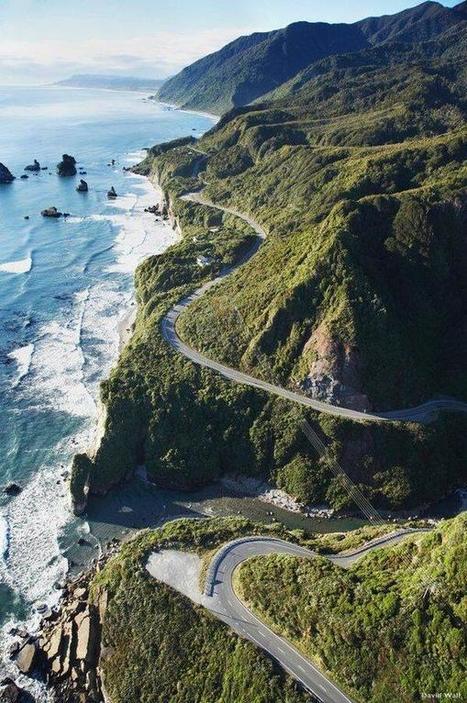MUGU ROCK, Calif. - Streams of rocks poured down a 150-foot hill along Pacific Coast Highway Tuesday.
Up above, a team of Caltrans climbers rappelled down the slope, kicking and pushing loose rocks free.
Using feet, hands, a sledgehammer, a pick, “if it’s loose, we knock it down,” said Jeremy Theisgen, a Caltrans climber for about six years.
Intense rain during a Dec. 12 storm swept rocks and mud down hills and over PCH in more than a dozen spots. Burned in the Springs Fire in May 2013, the hillsides had little to hold rocks and dirt in place when the rain hit.
In some areas, debris came down with enough force to push concrete barriers dozens of feet from their original spot.
A 9-mile stretch of the oceanside highway from Las Posas Road to Yerba Buena Road has been closed since the storm. And, Caltrans officials say it likely won’t reopen until late January.
“We have some significant damage,” said Caltrans spokesman Patrick Chandler.
Crews have to truck out tons of debris. But hillsides also need to be stabilized, and in some areas, the shoulder and rock walls separating the road from the waves need repairs.
On Tuesday, 10 Caltrans workers climbed up a steep slope just east of Mugu Rock to remove loose, unstable rocks. Fire took out the vegetation, and the rain had washed out the dirt that helped stabilize the hill.
Geologist Gustavo Ortega had scoped out the area earlier, and walked the crew along the highway, pointing out the problem areas.
One by one, they hooked onto a rope, wearing helmets and harnesses, and tools hanging down their sides.
“My role is to make sure everybody’s safe and to make sure the slope is stable,” Ortega said.
Aside from Ortega, when the crew isn’t suspended on the side of a hill, its members work on road crews, operate equipment, supervise roadwork.
Climbing and scaling rock faces is just one of their roles. “We volunteer for it,” Theisgen said.
The hardest part? “Starting, getting over the edge,” he said with a smile.
When Ortega started climbing for Caltrans, he was sent to train in Yosemite to learn the ropes. Later, Caltrans started its own academy, sending employees for a three-day training program, followed by a more intense refresher course.
A local crew practices in Ojai about once a month, said Alan Sharon, a heavy equipment operator and climbing instructor.
Sharon had climbed up the slope five times before any rocks came down Tuesday. Access wasn’t easy and the fire had left no vegetation on top of the hill.
“That made this job very challenging, because there are no natural anchors,” he said.
Typically, they can use a tree, large shrub or something else as an anchor. But on Tuesday, they had to fabricate their own, carrying up steel pipes and securing them several feet in the ground.
They weren’t complaining, though. Tuesday’s climb under blue skies also promised panoramic ocean views.
“This is stressful because you have to be on top of everything,” Ortega said about the need for safety.
“But it’s a fun day,” he said. “It’s better than the office.”
 Your new post is loading...
Your new post is loading...
 Your new post is loading...
Your new post is loading...




